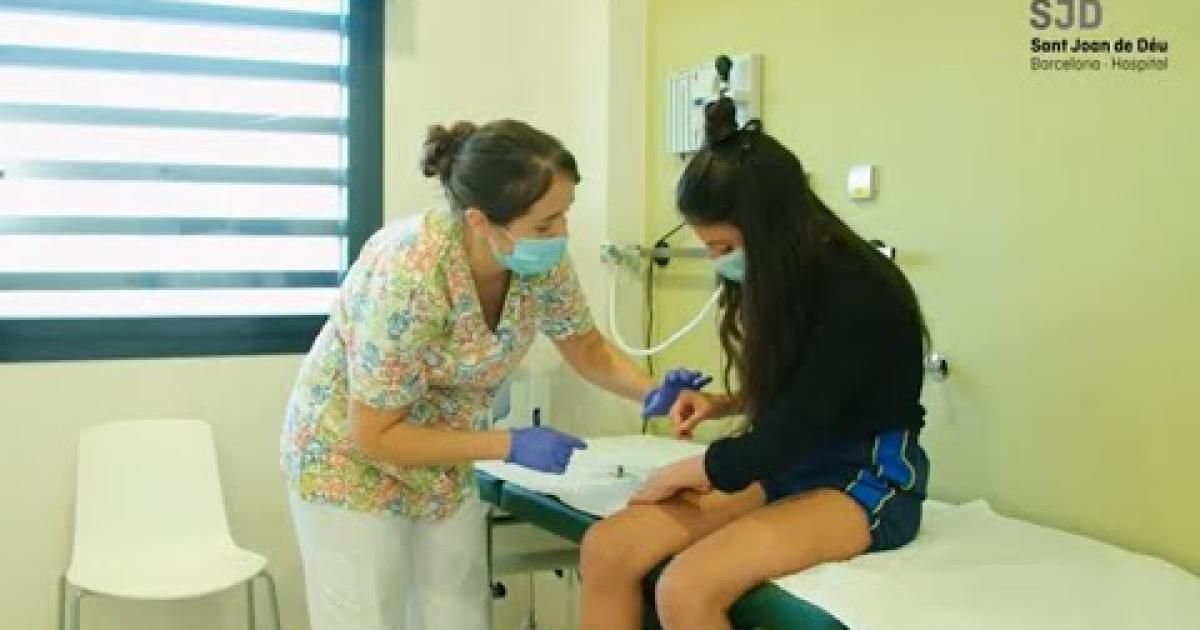
The transition of adolescents to adult health-care centres is carried out in a gradual and safe way, taking into account the needs of patients and their families.
Given its status as a highly specialised maternal and child health centre, SJD Barcelona Children’s Hospital has a pioneering programme on the transition of paediatric patients to the adult system, which it carries out with the collaboration of the major hospitals in Catalonia.
As a result of advances in health care, chronic pathologies have increased in recent decades, and so too has complexity. It was therefore necessary to create a structured and homogeneous system to respond to the diversity of needs of patients and families and to their degree of clinical complexity.
The transition of patients affected by rare diseases to adult centres is one of the priority objectives of SJD Barcelona Children’s Hospital's internal health-care model, led by the Hospital's Advisory Commission on Rare Diseases (CAMM-SJD).
Objectives of the transition programme
After examining the needs of families, patients and health-care professionals and learning about similar experiences in international centres, the Quality and Patient Experience Department launched the A10! ("adéu" in Catalan, "goodbye" in English) transition to adult centres programme in 2015.
It is a cross-cutting hospital-wide programme in which health-care circuits are organised, patient training programmes are developed to promote their autonomy, and focus is also placed on attending to the psychosocial needs of families with children with serious conditions, many of whom have rare diseases, and supporting them in their transition to adulthood.
During the process, patients and their family members are prepared for the changes that will occur with the transition to the adult system and provided with tools for self-managing their disease and advice to ensure their social welfare.
Patients and families are trained to fully understand the disease, its warning signs and its management. Autonomy, self-management and adherence to treatment are encouraged.
Coming of age brings social changes for patients with disabilities. The Social Work team can advise on the most appropriate legal forms of protection, social services and adult services.
Whenever the disease allows it, the patient and their family members are included in decision-making. The team seeks a balance between adequate continuity of care and meeting each patient's expectations for their future.
The medical team and the case manager monitor developments throughout the process, assess the ideal moment for the move to the adult centre and act as coordinators at the different stages.
Coordination with hospitals in Catalonia ensures continuity of medical care so that, during the transfer from paediatrics to adults, the patient at no time loses the clinical care they need.

Case manager: an essential role
This is an essential role in the transition process. While the profile may be different in each department or unit, the majority are nurses. This professional coordinates the entire process in collaboration with the health-care team, preparing the patient for adulthood through health education and training programmes, right up until the moment of the transfer or change to the adult system. At this point, the case manager supervises the transfer of clinical care to the most appropriate centre and facilitates, through the relevant professionals, links with the necessary community resources.
They are, in short, the reference person for the patient and their family members during the transition process.

Communication and follow-up
Sometimes, the transition begins to take place well in advance. In certain pathologies, at around the age of 12, patients and their families begin to receive information on the need to acquire autonomy in many respects, such as in the administration of drugs in cases where patients have to administer them themselves.
Case managers can resolve a wide range of concerns that might arise in the process by referring them, based on their type, to the corresponding teams, such as to the Psychology or Social Work teams.In addition, if they have concerns, families have access to the Patient Portal, a secure platform that enables them to have medical consultations and to obtain swift responses without necessarily having to visit the hospital.

Coordination between hospitals and specialists
SJD Barcelona Children’s Hospital works in coordination with CatSalut through the XUEC network (Network of Clinical Experience Units). In these units and in those that care for highly complex patients, an adult referral centre is essential in order to ensure the proper continuity of care.
Our centre works with Hospital Clínic, Bellvitge Hospital, Sant Pau Hospital, Hospital del Mar, Vall d'Hebron Hospital, Germans Trias i Pujol Hospital, Parc Taulí Hospital, Joan XIII Hospital, Josep Trueta Hospital and Arnau de Vilanova Hospital, among others. When the patient is from another Autonomous Community of Spain, the specialists and the case manager make sure that the information reaches the reference centre for that territory to ensure good communication.



